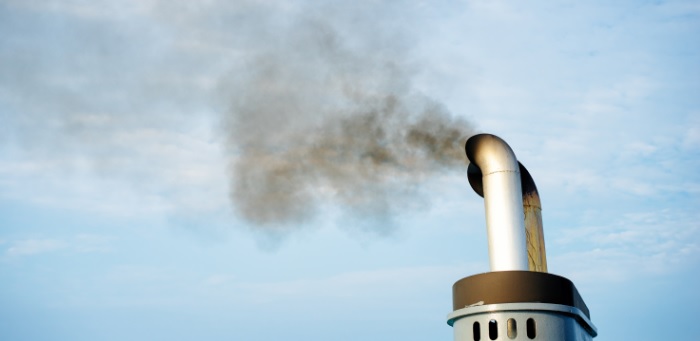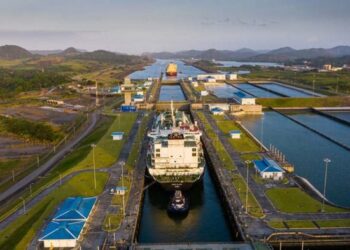While scrubbers are an attractive means of compliance with the IMO’s 2020 sulphur cap, equivalent to low-sulphur fuels, a recent surge in bans of open loop scrubbers in major ports worldwide seems to open new discussions, creating misconceptions surrounding the true environmental impact of these systems.
Although IMO’s EGCS Guidelines have established washwater discharge and monitoring criteria to safeguard against environmental damage, some coastal states and ports have implemented local regulations with more stringent requirements, restricting or completely prohibiting washwater discharge from open loop scrubbers or prohibiting the use of scrubbers.
Following a previous overview of local regulations, Gard P&I Club has now provided an updated list, valid as of 29 August:
ASIA
China: Following a big debate, China’s Ministry of Transport (MOT) issued its ‘Notice on Regulating the Implementation of Supervision and Management of Ship Air Pollutant Emission Control Areas’ which states that from 1 January 2019 discharge of washwater from scrubbers is prohibited in the county’s inland ECAs, port water areas of coastal domestic ECAs and Bohai Bay waters. The document also states that a ban in the entire coastal domestic ECA will be announced in due course.
Hong Kong: If a ship intends to use scrubbers in Hong Kong waters, to meet the sulphur cap requirements, application must be made to the Hong Kong authorities requesting for an exemption from using compliant fuel. The exemption application must be made at least 14 days prior to a ship’s first visit to Hong Kong after 1st January 2019.
Singapore: Discharge is prohibited in Singapore port waters from 1 January 2020, MPA Singapore said. The official statement advises ships fitted with open loop scrubbers to ‘carry out the switch to either closed-loop mode or to compliant fuel well in advance of the vessel’s arrival at the port waters’. Residues from scrubbers have been classified as toxic industrial waste under Singapore’s Environmental Public Health (Toxic Industrial Waste) Regulations. It can only be collected by licensed Toxic Industrial Waste Collectors. Explore more here.
India: In DG Engineering Circular 05 of 2018, India seems to indicate that scrubber washwater discharges are allowed if the criteria set out in MEPC.259(68) are met. However, this is qualified with a requirement that local regulations should also be followed. As of now, it is not clear if local restrictions will be imposed in some areas, according to Gard P&I Club.
UAE:
-Abu Dhabi: In 2013, Abu Dhabi authorities issued ‘Vessel Discharge and Maintenance Guidelines For Owners, Masters And Agents’, stating that scrubber washwater can be discharged in port waters if free form pollutants whilst scrubber sludge should be discharged from the vessel to an Abu Dhabi Ports Company (ADPC) licensed waste disposal contractor.
-Fujairah: As per notice to mariners no. 252, Harbour Master of Fujairah has announced that use of open loop scrubbers will be banned in port waters.
EUROPE
Belgium: The European Commission’s 2016 note on discharge of scrubber washwater, bans the discharge in ports and inland waters.
Germany: Discharge is not allowed in inland waterways and the Rhine, pursuant to Articles 1 and 3 of the CDNI Convention (Convention on the Collection, Deposit and Reception of Waste Produced during Navigation on the Rhine and Inland Waterways).
Lithuania: The authorities are currently studying the impact of scrubber washwater on the marine environment and will provide its conclusions upon completion of the study. Meanwhile, the current position seems to be that discharge is not allowed in port waters, as per European Commission’s 2016 note.
Latvia: General position, as mentioned in the European Commission’s 2016 note, is that discharge is not allowed in territorial and port waters. Discussions are currently ongoing within the European Commission, on improving the regulations and to provide more clarity.
Ireland
-Dublin: The Irish authorities’ Notice No. 37 of 2018 ‘Prohibition on the Discharge of Exhaust Gas Scrubber Wash Water’ stipulates that discharge of washwater is prohibited in waters under Dublin port jurisdiction. Dublin port jurisdiction includes waters from the Matt Talbot Memorial Bridge eastwards to a line from the Baily Lighthouse through the North and South Burford buoys and through Sorrento Point.
-Waterford: As per Port of Waterford’s marine notice ‘Prohibition on the Discharge of Exhaust Gas Scrubber Wash Water’, discharge of scrubber washwater is prohibited in port limits from the start of January 2019.
-Cork: Port notice No. 15 of 2018 states that given the potential for impact on sensitive ecosystems, and the abundance of Natura 2000 sites within the jurisdiction of the port company, discharge of scrubber washwater is prohibited in port waters.
Norway: Under the amendments of 1 March 2019 to Regulation No.488 on the environmental safety of ships and mobile offshore units, use of open loop scrubbers is prohibited in the Norwegian fjords. Also, for ships using closed or hybrid type scrubbers, a device for reducing visible emissions to air is required.
US
Hawaii: Conditional section 401 WQC (Water Quality Certification) as mentioned in section 6.7 of 2013 VGPallows for discharge of washwhater subject to certain requirements being fulfilled. These requirements can be found in the same section.
Connecticut: Connecticut has laid down specific conditions as part of the 2013 Vessel General Permit (VGP) requirements. In accordance with section 6.5.9[UK1] of the 2013 VGP, discharge of exhaust gas scrubber washwater into Connecticut waters from any vessel covered under the VGP is prohibited. Please see CGS section 22a-427, and Connecticut Water Quality Standards (CT WQS).
California: The CARB OGV (California Air Resource Board for Ocean Going Vessels) regulations do not permit the use of abatement technologies such as scrubbers, hence their use as well as any discharge of washwater is prohibited. Vessel discharge regulations for Port of Long Beach also state that it is prohibited to discharge washwater from scrubbers in port waters. However, pursuant to CARB’s Marine Notice 2017-1 discharge is permitted if the vessel has an experimental or temporary research permit.
Australia
As of today, bans on the discharge of washwater from open loop scrubbers have not been imposed by any state. This is indicated in the summary of the 6th roundtable discussion hosted by AMSA and MIAL. It is stated that authorities are currently looking at the impact of scrubber discharges.
South Africa
In marine notice no. 08 of 2019 South Africa has indicated that it accepts all types of approved scrubbers including open loop scrubbers as long as the IMO discharge criteria set out in Resolution MEPC.259(68) is met. However, recent reports indicate that South Africa may reconsider its position on the acceptance of open loop scrubbers. A decision is expected in September 2019.
Recommendation
Taking into consideration the above, in those areas where the discharge of washwater is not permitted, vessel operators have two alternative options to choose from to ensure compliance with the sulphur limits:
- use compliant fuel instead of open loop scrubbers; or
- switch over to closed loop mode of operation, in which case it will be necessary to convert currently installed open loop systems to closed loop or hybrid systems, if not already done.
































































scrubber installation an d now low sulfur Fuel Oil, the problem is the cost of implimenting should be subsidized by the governments and states controls